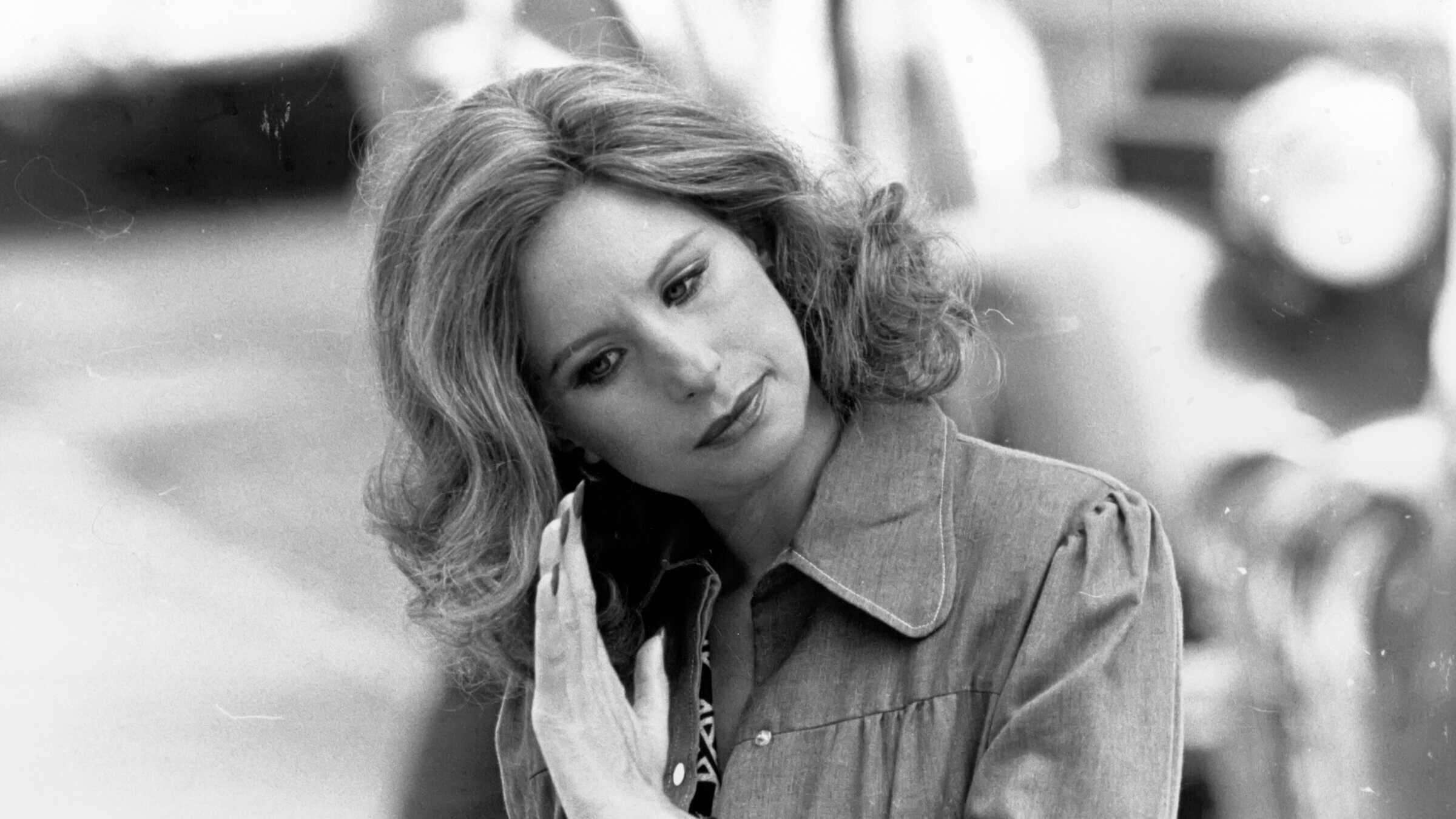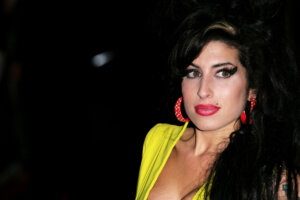Are Barbra Streisand and Bob Dylan the best singers of all time — or the best Jewish singers?
On Rolling Stone’s latest list of 200, a minyan of Jewish vocalists

Barbra Streisand, circa 1984. Photo by Getty Images
Rolling Stone magazine kicked off the new year with a list of “The 200 Greatest Singers of All Time,” updated for the first time since 2008, when it was limited to a mere 100 vocalists. The introduction to the list specifies that it is a list of great singers, not great voices, a nuance that allows for recognizing vocalists who may not have conventionally beautiful voices. Rather, it finds value in vocal originality and influence, rewarding those who “can remake the world just by opening their mouths.”
The list is not limited to singers from the rock era or to Western pop music; the magazine cast a wide net that includes vocalists from the jazz era and from India, Africa and the Middle East, which allowed a nod toward Israeli singer Ofra Haza, one of a minyan of Jewish vocalists on the list, depending on how one counts and how one defines who is a Jew. As for how one counts, one treads carefully in those waters given the biblical injunction against directly counting Jews found in, appropriately enough, the Book of Numbers. As for who gets counted as a Jew, that is a debate far beyond the scope of this article.
Lists like these are meant to provoke readers in countless ways. “Is Mariah Carey really a better singer than Ray Charles?” “How could you have left out George Harrison and Phoebe Snow?” “How could you have ranked John Lennon above Paul McCartney?” For our part, we shrug if not downright bristle at the omission of such MOTs as Art Garfunkel, Neil Diamond, Neil Sedaka and Marc Bolan. And where are Carly Simon, Laura Nyro, Susanna Hoffs, and Carole King, for heaven’s sake! While The Clash’s Joe Strummer gets a nod, how about his equally important bandmate and co-vocalist Mick Jones, the son of a Russian-Jewish mother, Renee Zegansky?
So who are the Jewish vocalists who do appear on the Rolling Stone list?

First of all, there are the most obvious ones: Barbra Streisand and Amy Winehouse, each of whom in her own way boasts (or boasted) singular sounds emanating from her vocal cords, sounds that pleased the masses while defying notions of conventional beauty. One could even argue that they sang with the slightest hint of a Yiddish accent — not in the pronunciation of their lyrics, mind you, but in the yearning, almost cantorial quality of their singing voices.
Then there are the trinity of great male Jewish rock singers: Bob Dylan, Lou Reed and Leonard Cohen. All three are united in their lack of conventionally pretty voices, but all three are or were brilliant vocalists. This is evidenced by their inclusion in the list and in how they employed their unusual vocal instruments, especially in their phrasing, as well as in their use of their unusual and highly personal tones to convey meaning and emotion.

We’ve heard it a thousand times: “But Bob Dylan can’t sing!” Listen again. For one, he never sings off-key or out of tune, frequently held lazy opinions to the contrary. Secondly, Dylan ushered in an entirely new style of singing in popular music, a wholly organic blend of blues holler, country drawl, rockabilly shouter and folk melodicist. His was and is the voice of the people as much as his songs spoke for the forgotten hordes and society’s outcasts.
Reed and Cohen were both beneficiaries of Dylan’s innovations as a popular vocalist, each likewise using the limitations of their raw voices — and I use the term “limitations” here only in the sense held by those still clinging to antiquated notions of what makes a good or great singer — to express their equally raw lyrics and poetry. Cohen sounded like an old Jewish grandpa or perhaps a biblical prophet. Reed, in his talk-sing fusion, sounded like a street-smart hustler doing spoken-word poetry decades before the term was invented.
And the others? As his name suggests, Jamaican reggae and dancehall singer Barrington Levy boasts Jewish heritage, even as he identifies as Rastafarian. Courtney Love, who led the 1990s alt-rock group Hole and was married to grunge-rock avatar Kurt Cobain, also has Jewish ancestry and has suggested that if her husband had some, likewise, it may have saved him from his tragic fate: He shot himself, dying at age 27.
The list also includes two of the most famous rock ’n’ roll and soul vocalists who became Jews by choice in their adult lives: Jackie Wilson and Little Richard. Although an ordained minister, Little Richard maintained he was Jewish throughout his life, and formalized the connection when he converted in the 1980s, as delineated in a 2020 Forward article. Some say his conversion was guided by Bob Dylan, who, despite his own flirtation with evangelical Christianity in the late 1970s and early ’80s, firmly returned to the fold of his ancestors in the mid-1980s. This was reflected in songs including “Neighborhood Bully” and “Everything Is Broken” and in his frequent appearances in the annual Los Angeles Chabad Telethon.
As one would expect, Elvis Presley placed high on the Rolling Stone list, at number 17. (Bob Dylan bested him at number 15). Although Presley grew up attending church, he could trace direct Jewish matrilineal descent back at least as far as his great-great-grandmother, as explored in a 2021 Forward article.
And that about makes a minyan of great Jewish singers as proposed by Rolling Stone.
___
Correction: An earlier version of this article incorrectly stated that Kurt Cobain died of a drug overdose. He died by suicide.
The Forward is free to read, but it isn’t free to produce

I hope you appreciated this article. Before you go, I’d like to ask you to please support the Forward.
Now more than ever, American Jews need independent news they can trust, with reporting driven by truth, not ideology. We serve you, not any ideological agenda.
At a time when other newsrooms are closing or cutting back, the Forward has removed its paywall and invested additional resources to report on the ground from Israel and around the U.S. on the impact of the war, rising antisemitism and polarized discourse.
This is a great time to support independent Jewish journalism you rely on. Make a gift today!
— Rachel Fishman Feddersen, Publisher and CEO
Support our mission to tell the Jewish story fully and fairly.
Most Popular
- 1

Culture Cardinals are Catholic, not Jewish — so why do they all wear yarmulkes?
- 2

Fast Forward Ye debuts ‘Heil Hitler’ music video that includes a sample of a Hitler speech
- 3

News School Israel trip turns ‘terrifying’ for LA students attacked by Israeli teens
- 4

Fast Forward Student suspended for ‘F— the Jews’ video defends himself on antisemitic podcast
In Case You Missed It
-

Yiddish קאָנצערט לכּבֿוד דעם ייִדישן שרײַבער און רעדאַקטאָר באָריס סאַנדלערConcert honoring Yiddish writer and editor Boris Sandler
דער בעל־שׂימחה האָט יאָרן לאַנג געדינט ווי דער רעדאַקטאָר פֿונעם ייִדישן פֿאָרווערטס.
-

Fast Forward Trump’s new pick for surgeon general blames the Nazis for pesticides on our food
-

Fast Forward Jewish feud over Trump escalates with open letter in The New York Times
-

Fast Forward First American pope, Leo XIV, studied under a leader in Jewish-Catholic relations
-
Shop the Forward Store
100% of profits support our journalism
Republish This Story
Please read before republishing
We’re happy to make this story available to republish for free, unless it originated with JTA, Haaretz or another publication (as indicated on the article) and as long as you follow our guidelines.
You must comply with the following:
- Credit the Forward
- Retain our pixel
- Preserve our canonical link in Google search
- Add a noindex tag in Google search
See our full guidelines for more information, and this guide for detail about canonical URLs.
To republish, copy the HTML by clicking on the yellow button to the right; it includes our tracking pixel, all paragraph styles and hyperlinks, the author byline and credit to the Forward. It does not include images; to avoid copyright violations, you must add them manually, following our guidelines. Please email us at [email protected], subject line “republish,” with any questions or to let us know what stories you’re picking up.















